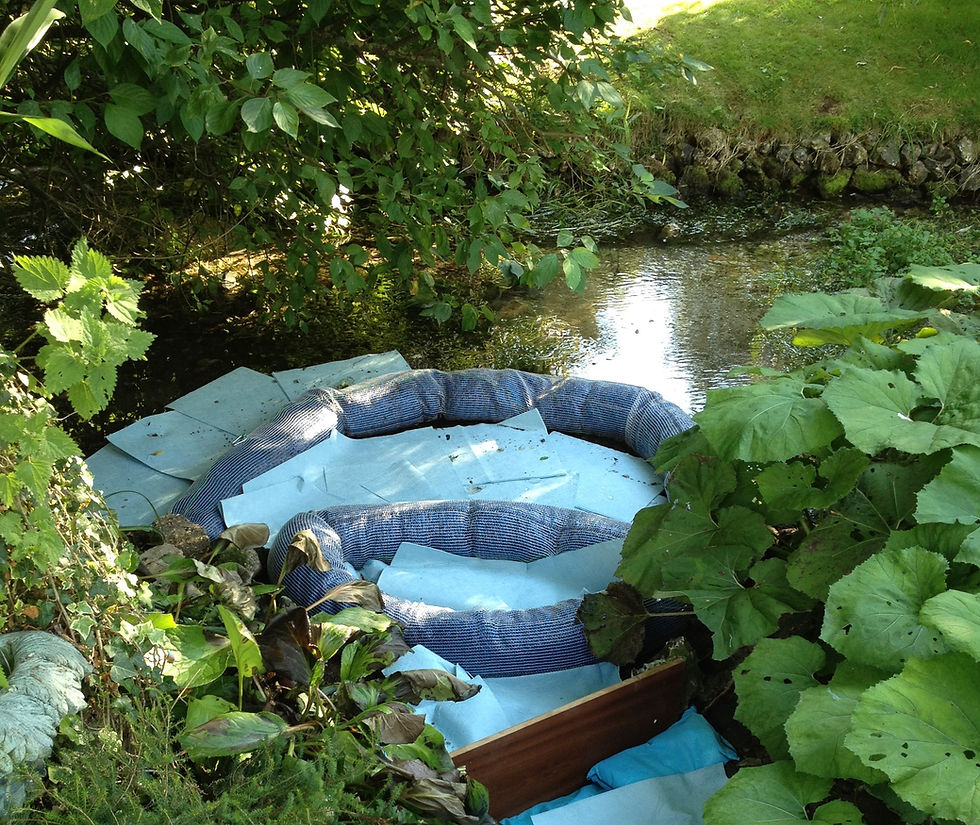I Smell Oil! Preventing and Responding to Heating Oil Leaks
- ERS Remediation

- Mar 4, 2020
- 3 min read
Updated: May 12, 2023
Today we will talk about preventing and responding to heating oil leaks. With the weather getting colder and winter approaching, one thing is for certain: failing to prepare is preparing to fail...

Aren't Oil Leaks are Reserved for Ships and Rigs?
In actual fact, Fuel Oil News reports that 75% of confirmed oil pollution incidents are at domestic premises!
Whilst ERS specialises in large and tricky remediation projects, we're also experienced at assisting individual clients, such as homeowners and landlords, who can smell oil and fear they’ve had a leak from their domestic heating oil storage tank.
Looking back through our records, we’ve had a few oil spill horror stories – the worst of which being a domestic spill that ultimately led to the demolition of our Client’s neighbour’s house to allow cost effective clean up!
Yikes, here's hoping we don't get too many more of those!
So what can I do to prevent a spill?
With Autumn in full swing, now is a good time to get the fuel supply for your heating systems thoroughly checked - as well as your regular boiler service. It’s all too easy to take the storage tank and feed pipe for granted, but basic preventative maintenance is not expensive and can save in the long term.
Incidents of tank failures are, thankfully, not common, and failures are often noticed quickly. Many of our call outs to domestic incidents relate to leakage from the pipework between the tank and the boiler. However, a slow but steady leak that goes unnoticed for a while can be just as troublesome to deal with.
Our Quick Oil Tank Health Check List
Is your oil tank single or double skinned?
How old is the tank?
When is the tank scheduled for replacement?
What route does the oil pipe take from the tank to the house?
How much fuel you usually use? (Going through more oil than usual is also an indication that you’ve got a leak).
Our friends at the Oil Care Campaign (http://oilcare.org.uk/) have some basic routine householder checks on its website. They can also provide low cost level sensors are available to sound an alarm in the house in the event of a sudden drop in oil levels. The same device will also show you how full the tank is and thus whether it is time to order more fuel.
I Think I've Had a Leak! What Should I do?
First of all, if there are large pools of oil or oil staining visible on the ground, or if the smell is making you or someone in your house feel sick or dizzy, calmly get everyone out of the house/ away from the spill location and call your insurer for an emergency spill response.
If it’s a small leak and it’s safe to do so you can try the following:
Close the tap or valve on the tank – normally at the base of the tank
If the leak is from a split or crack in a plastic type tank. grate or push solid soap over / into a crack in the tank as a temporary measure to slow the flow.
Stop oil getting into drains or water courses, using earth or sand to form dams or bunds. Cover drainage grates with impermeable mats, weighted down plastic, or anything to hand that might stop or stem the flow
Use sand or earth to try and contain surface flows of oil, again by forming dams or bunds.
Collecting leaking oil in a container to stop it being absorbed into the ground
Never attempt to wash the oil away with a hose, or detergent or soap. This will cause it to spread further and make the problem worse.
If you’re not sure whether you have a leak or not, call your insurer anyway. Its always better to get it checked and dealt with early than to let a problem grow. And if your insurer decides action is required, give one our helpful Spill Response Team a call on 0141 772 2789.
ERS is accredited by the UK Spill Association to respond to oil spills that impact soil and groundwater, so our staff have the knowledge and experience needed to do any required spill investigation and remediation work. Even if it requires demolishing your neighbour's house!







Comments